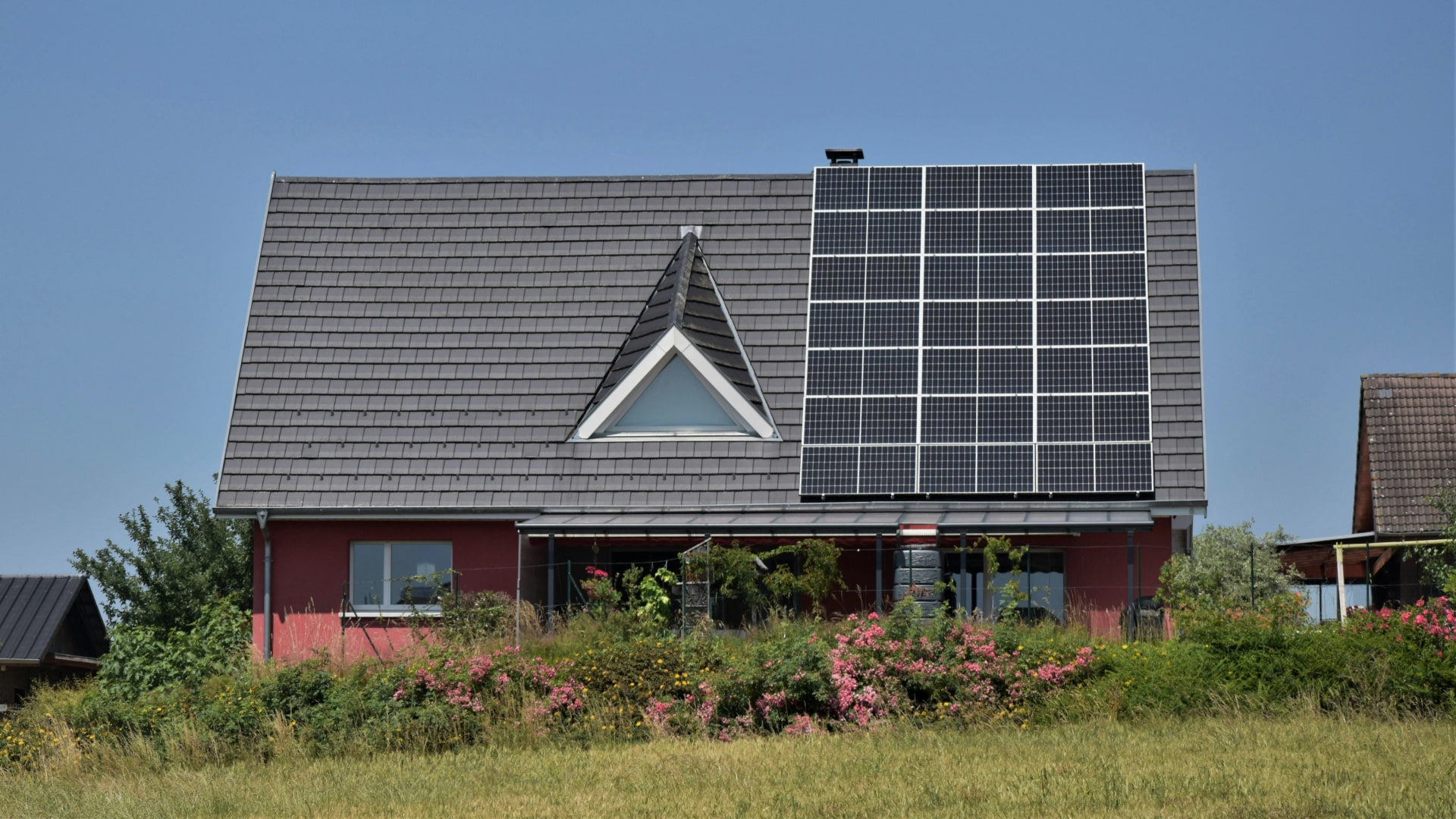21.10.2024
3
mins
By
Lucy O'Connor
Households contribute approximately 25% of energy consumption and 17% of carbon emissions worldwide. Unfortunately, these numbers show no sign of decreasing. In the UK, emissions from household fossil fuel and electricity use are expected to rise 11% by 2035 compared to 2015. This highlights the urgent need to accelerate the home energy transition.
Shifting away from fossil fuels to more efficient technologies, like heat pumps, can help reduce emissions, and make energy bills more affordable, energy supply more secure, and homes more comfortable. For example, a heat pump installation could save households around 1666 kg of carbon emissions and up to £200 annually. However, the high upfront costs of upgrades (e.g. a heat pump costs between £3000-7000) remain a significant barrier, especially in today’s economic climate. Research by our partner, NatWest, revealed that while 66% of UK homeowners plan to retrofit their homes over the next decade, cost is the biggest barrier to action. There’s a clear need for better financial incentives to make these solutions more accessible and encourage homeowners to invest.
Even with financial support, many homeowners still struggle to take action due to a lack of awareness about their energy consumption and carbon footprint. Without this knowledge, people don’t know where to start. To successfully drive the home energy transition, a combination of financial assistance and educational support is essential, empowering homeowners to make informed decisions about sustainable upgrades.
The role of financial institutions in the home energy transition
Financial institutions can provide both financial support and personalised advice, to help their customers overcome the barriers to adopting home energy upgrades. This is both a commercial opportunity and a regulatory imperative. Increasingly, financial institutions are required to report on their financed emissions under frameworks such as the Task Force on Climate-Related Financial Disclosures (TCFD), the EU’s Sustainable Finance Disclosure Regulation (SFDR), and New Zealand’s climate-related disclosure requirements (S3C15). These regulations mandate that banks address climate risks and emissions in their lending portfolios, incentivising them to promote sustainable home energy upgrades to reduce the carbon footprint of the properties they finance. Regulations are also increasingly affecting other sectors, like energy retailers and insurance companies, making their involvement in decarbonisation equally important.
How data can accelerate the home energy transition
Financial institutions can access valuable customer data, such as energy bill expenditures, which they can use to calculate a household’s carbon footprint. By integrating this data with more detailed energy information from sources like smart metres, property databases, and customer input, banks can give their customers a comprehensive understanding of their home energy consumption, help them identify inefficiencies, and offer personalised solutions to reduce energy costs and emissions.
By using this data-driven approach, banks can offer tailored green products and services at the point of need. For example, if a bank identifies excessive energy use in heating, it can recommend the installation of a heat pump. The bank can then connect the customer with trusted suppliers and offer a green loan to cover the upfront installation costs. This removes financial barriers and enhances the overall customer experience, making it easier for households to adopt sustainable solutions.
Additionally, banks can track the energy and emissions reductions that result from the upgrades they finance. This not only helps banks make informed lending decisions, but also allows them to align their portfolios with environmental, social, and governance (ESG) goals.
Cogo’s home energy solution
Cogo’s home energy solution offers banks a powerful tool to help customers reduce energy consumption and costs while supporting regulatory compliance and unlocking new commercial opportunities for banks.
By combining user input with energy data, Cogo's solution enables customers to understand their home's carbon footprint. The tool compares their current energy consumption with potential upgrade scenarios, such as installing solar panels or heat pumps, offering feedback on energy savings, associated costs, and estimated payback periods. Banks can then support customers by connecting them with trusted suppliers and installers and providing tailored green finance options.
We recently partnered with Westpac to launch our home energy efficiency tool, to help their home loan customers find and implement energy-efficiency upgrades. With a quick online assessment, customers receive personalised recommendations, estimated costs, potential energy savings, and information on available rebates.
Interested in learning how Cogo can support your financial institution in driving the home energy transition and empowering your customers with actionable insights? Get in touch with our team today or read on to explore the key benefits for your bank and customers.
Benefits for customers
- Personalised advice: Customers get tailored advice on home upgrade options, and feedback on energy savings and associated costs.
- Improved financial support: Customers can access tailored green loan options, making energy-efficient upgrades more affordable.
- Simplified process: The solution streamlines the search for the right home energy upgrades, connecting customers with trusted suppliers and installers.
- Savings: Customers save on lower energy bills and a smaller carbon footprint.
Benefits for banks
- Regulatory compliance: Meet reporting requirements with accurate, up-to-date data on energy use, costs, and emissions.
- New commercial opportunities: Generate additional revenue by facilitating connections between customers and suppliers. Tailored green lending options also drive increased borrowing.
- Improved customer experience: By offering personalised, easy-to-understand recommendations for home energy upgrades, banks can improve customer satisfaction and loyalty.
- Attract conscious customers: Appeal to younger, conscious customers who have higher lifetime value and seek out sustainable financial solutions.
Financial institutions have a unique opportunity to accelerate the home energy transition by leveraging data to offer personalised advice and financial support. Partnering with fintechs like Cogo gives banks access to crucial home energy data, enabling them to provide tailored financing options and connect customers with trusted installers. This holistic approach not only makes energy-efficient upgrades more accessible but also enhances customer engagement, satisfaction, and retention. It also equips banks with the necessary data to meet regulatory requirements and report on their financed emissions, positioning them as leaders in the transition to a sustainable future.

.jpg)
.png)


